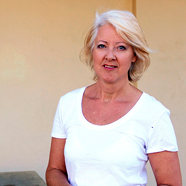Healing the cracks in your workplace culture
Content Summary
- COVID 19

This article was current at the time of publication.
The unprecedented events of 2020 are being felt by businesses globally, but small-to-medium enterprises (SMEs) are particularly vulnerable to change and uncertainty.
For many SME owners struggling with the business and personal impacts of COVID-19, it is accountancy professionals who have been their first point of contact.
Witnessing the stress and distress of clients, colleagues, and the effect on their mental health and general wellbeing, it is perhaps not surprising that accountants are reporting low morale among staff and productivity drops of up to 20 per cent.
Given that parts of the Australian economy may take years to recover, and that COVID-19 has ushered in a variety of new working arrangements, how can accountancy professionals ensure that their culture doesn't start coming apart at the seams?
Anxiety overload
Andrew Seinor FCPA, founder and CEO of online people management system The H Factor, says accountants are dealing with many stressful issues including consulting with clients who are being forced to assess the viability of their businesses or the prospect of staff redundancies due to changes to JobKeeper.
"It's especially difficult for accountants working in [or with] SMEs who may well have relationships with people badly affected by the impacts of the virus," Seinor says.
"They are seeing clients in contrasting situations, where some businesses are actually booming while others are facing substantial business restructuring due to economic circumstances."
As every client is seeking advice at the same time, workloads for accountants have risen sharply, increasing stress levels. The scale of the problem is reflected in research by mental health and wellbeing support organisation Beyond Blue in a study supported by CPA Australia, which reports that two-thirds of Australia's small business owners say the pandemic has negatively affected their mental health.
Recognising that being a therapist isn't usually part of an accountant's toolkit, Beyond Blue has launched a free online mental health support course for accountants advising SMEs.
Individuals and teams
Effective communication and empathetic leadership are doubly important during times such as these, Seinor says.
"The advice I give to managers in leading their teams, especially at the moment, is to treat everyone as an individual. We all cope with stress and anxiety in different ways and we all have different capacity thresholds for feeling overwhelmed," he says.
"Withhold judgement about people, and instead make a concerted effort to listen."
As for workloads, Seinor says client expectations need to be managed realistically so the team isn't swamped, and work is allocated evenly. There should also be complete transparency with clients about what's achievable and in what timeframe.
Giving team members more autonomy in setting priorities and determining what is urgent will make people feel they have a stake in remedying difficult situations, he says.
Feelings exposed
Andrew O'Keeffe, founder of management consultancy Hardwired Humans, designs people strategies based on human instincts.
He says restoring or reinforcing company culture during times of change and crisis is assisted by people being encouraged to talk about their feelings — which might not be the most natural or easy thing to do in many workplaces.
"Ironically, it can be easier in a time like this for leaders who don't normally ask people how they are coping to have these more personal conversations," O'Keeffe says.
"There is a clear business need to do so — so you can delegate work and not overload people and cause stress, but also ensure good quality work for clients."
How you get individuals to open up has to be handled well and is usually best done one-to-one, as people are more protective about what they reveal in a group and how they will be judged.
"We are social beings and humans bond by informal chit-chat," O'Keeffe says. "The kind of questions that are more likely to draw a response arise out of talking about individuals' lives.
"Questions such as: 'How has this last week been for you?' or 'We have been working in this state of COVID for a while, are there things causing you frustration? Is there anything about your personal arrangements that I need to respect and be aware of?'"
Remote culture
However, one of the bigger questions is where these conversations will take place in the future. For some accountants, office and working arrangements are nearly back to normal, while for others stringent social controls remain.
Seinor's view is that working from home is going to become more common, even as some social restrictions are eased. This has implications for the culture of almost all organisations.
According to Seinor, communicating what is happening at an organisational level is important, as team members can feel dislocated when away from their nerve centre. Common objectives and how they are going to be delivered need to be clear.
Seinor also emphasises that: "good work is recognised and acknowledged and there is an allowance for social connections and collaboration when establishing productivity targets and assessing individual and team capacity". Without a doubt, that means more emailing, more virtual meetings, and more sharing of information.
"Stressful situations tend to expose cracks between the actual and desired organisational culture already there, so have open communication to shine a light on the crack and seek input from your team about how to repair it," he says. "Avoid feeling the need to lay any blame for the crack being there in the first place."
Culture was never something set in stone and forgotten, even pre-COVID. "Things will change over time as working arrangements, technology, team stress, and client needs evolve," he says.
Creating an environment that encourages positive contributions will make it more likely the company culture will remain resilient.
Discover more
Reporting and auditing during COVID-19
Requirements and implications of COVID-19 on financial reporting and auditing
- COVID 19
Information resources
Links to official information on restrictions and business requirements in Australia
- COVID 19

Member updates
See how COVID-19 may impact your business
- COVID 19
Influencing public policy during COVID-19
CPA Australia's submissions to government and analysis of COVID-19 stimulus and support packages
- COVID 19

COVID-19 support
Resources, guides and information to support you and your clients
- COVID 19
Grants and business support
Financial support was available for eligible businesses affected by lockdowns and public health orders
- COVID 19




